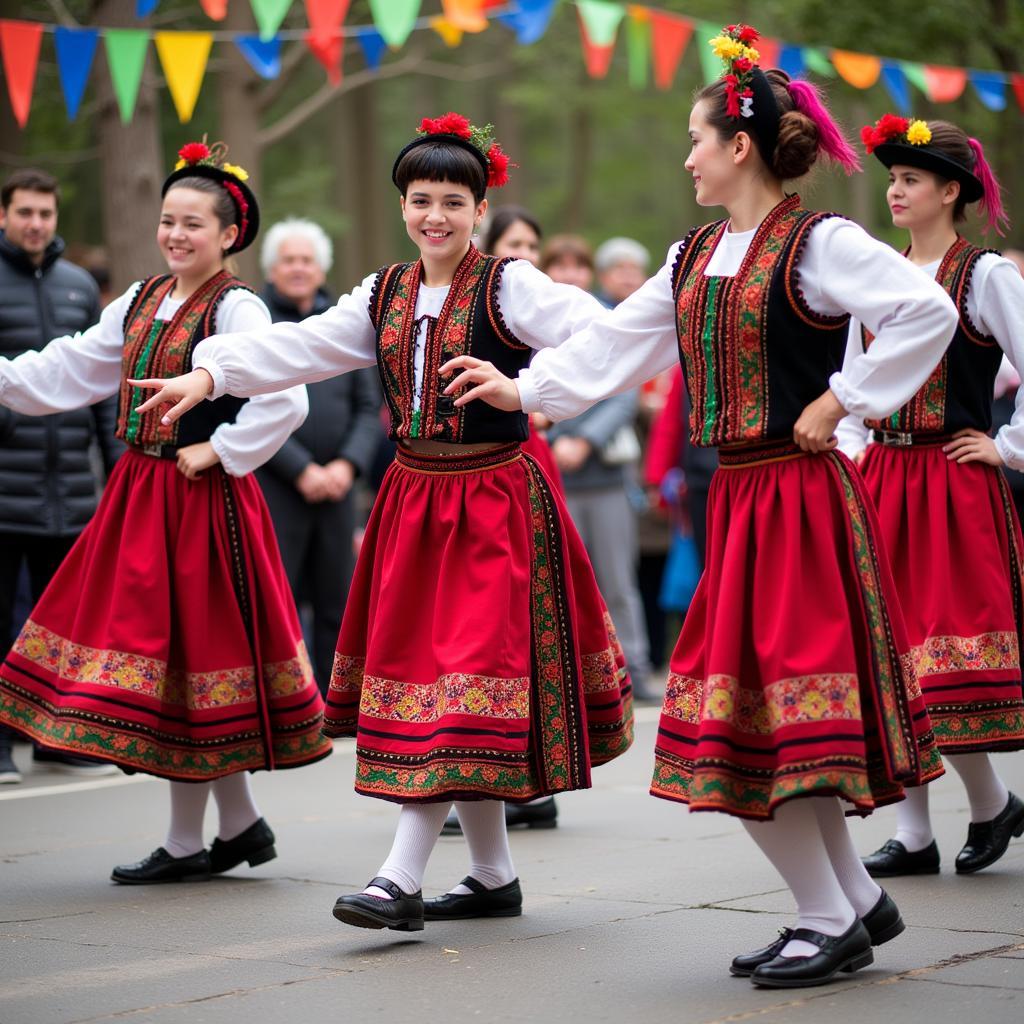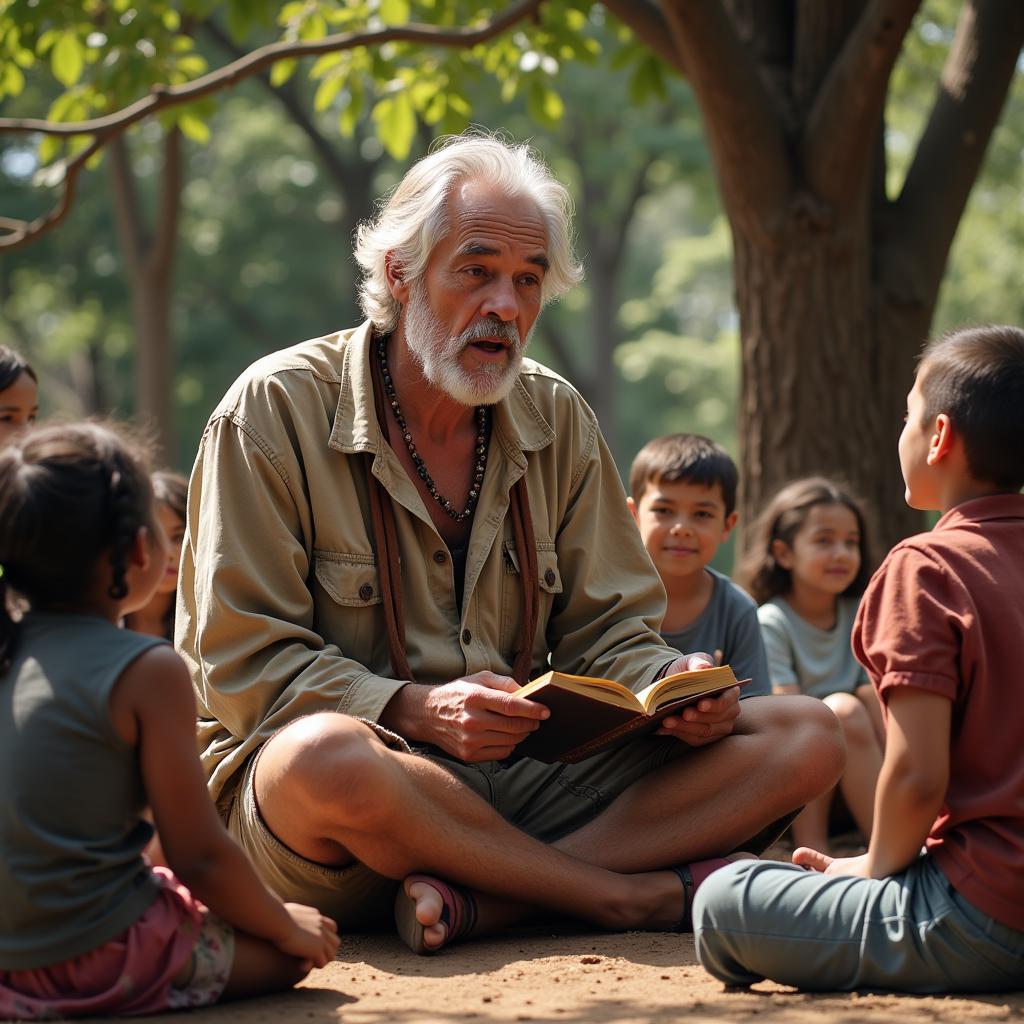Exploring the Rich Tapestry of African Caribbean Folk Culture
African Caribbean Folk culture represents a vibrant blend of African traditions and Caribbean influences, forged through a shared history of resilience and creativity. This intricate tapestry weaves together music, dance, storytelling, art, and religious practices, reflecting the diverse experiences of people of African descent in the Caribbean. Let’s delve into this fascinating cultural landscape and uncover the rich heritage it holds.
The transatlantic slave trade tragically uprooted millions of Africans from their homelands and dispersed them across the Caribbean. Despite the brutal conditions of enslavement, African cultural practices persevered, adapting and evolving in new environments. These traditions intertwined with indigenous Caribbean cultures and European colonial influences, giving rise to the unique and dynamic African Caribbean folk culture we know today. You’ll find surprising connections exploring the African folktales tradition.
Music: The Rhythms of Resistance and Celebration
Music plays a central role in African Caribbean folk culture, serving as a powerful medium for expressing both joy and sorrow, resistance and resilience. From the pulsating rhythms of drums and the melodic strains of string instruments to the soulful harmonies of vocal traditions, music embodies the spirit of African Caribbean communities.
Exploring the Diverse Genres
Various musical genres have emerged within African Caribbean folk culture, each with its own distinct characteristics and historical roots. Examples include:
- Calypso: Originating in Trinidad and Tobago, calypso is a vibrant musical form known for its satirical lyrics and social commentary.
- Reggae: Developed in Jamaica, reggae is characterized by its syncopated rhythms and often carries messages of social justice and spirituality.
- Soca: A fusion of calypso and Indian music, soca is a high-energy genre popular throughout the Caribbean.
- Zouk: Originating in the French Antilles, zouk is a fast-paced, rhythmic music style often accompanied by sensual dance moves.
Dance: Embodied Expressions of Culture
Dance is another integral aspect of African Caribbean folk culture. Like music, it serves as a powerful form of expression, conveying stories, emotions, and cultural values through movement. Many African Caribbean dances retain elements of their African origins, reflecting the enduring legacy of ancestral traditions.
From Ritual to Recreation
African Caribbean folk dances often have deep roots in ritual and ceremony, connecting communities to their history and spiritual beliefs. Over time, many of these dances have also evolved into forms of social recreation, enjoyed at celebrations and festivals.
- Kumina: A Jamaican dance of African origin, kumina is often performed at wakes and other ceremonies, accompanied by drumming and chanting.
- Bélé: A traditional dance from Martinique and Guadeloupe, bélé involves intricate footwork and rhythmic movements, often performed in a circle.
- Jonkonnu: A vibrant masquerade tradition found in several Caribbean countries, Jonkonnu features elaborately costumed dancers parading through the streets.
 A Vibrant African Caribbean Folk Dance Performance
A Vibrant African Caribbean Folk Dance Performance
Storytelling: Preserving History and Tradition
Storytelling plays a vital role in transmitting cultural knowledge and values across generations. African Caribbean folk tales are rich with symbolism and often feature trickster characters, animal protagonists, and moral lessons. These stories often reflect the challenges faced by enslaved Africans and their descendants, while also celebrating their resilience and ingenuity. You might be interested in learning more about the African god of mischief.
Oral Traditions and Cultural Memory
The oral tradition is central to African Caribbean folk culture. Stories, songs, and proverbs are passed down from one generation to the next, preserving cultural memory and fostering a sense of community identity.
The Intersection of African and Caribbean Influences
African Caribbean folk culture is not simply a replica of African traditions. It represents a dynamic fusion of African and Caribbean elements. African religious practices, such as Vodou in Haiti and Santería in Cuba, have blended with Christian beliefs and indigenous spiritual traditions. Similarly, African culinary traditions have evolved in the Caribbean, incorporating local ingredients and cooking techniques to create unique and flavorful dishes. Learn more about African American cultural traditions.
 African Caribbean Storytelling Tradition
African Caribbean Storytelling Tradition
Conclusion: A Living Legacy
African Caribbean folk culture is a dynamic and ever-evolving expression of identity and heritage. It represents a testament to the resilience and creativity of people of African descent in the Caribbean, who have transformed their experiences of displacement and oppression into a vibrant cultural tapestry. Exploring African Caribbean folk culture offers a powerful lens through which to understand the complex history and rich cultural heritage of the Caribbean region. Let’s continue to celebrate and preserve this vital legacy. This might also interest you: African dance timeline.
FAQ
- What are some common instruments used in African Caribbean folk music?
- What are some examples of African Caribbean folk dances?
- How has storytelling contributed to preserving African Caribbean culture?
- What are some examples of African-based religions in the Caribbean?
- How has African cuisine influenced Caribbean food?
- What are some key characteristics of African Caribbean folk tales?
- What is the significance of Jonkonnu in Caribbean culture?
For further support, please contact us: Phone: +255768904061, Email: [email protected] or visit us at: Mbarali DC Mawindi, Kangaga, Tanzania. We have a 24/7 customer support team.